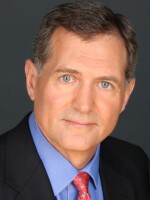ARI SHAPIRO, HOST:
Back in December, President Trump declared that the Islamic State had been defeated and it was time for all U.S. troops to come home from Syria. But after widespread criticism and the resignation of his defense secretary, the president now says a small U.S. force will remain here. He is speaking this afternoon in the Oval Office.
(SOUNDBITE OF ARCHIVED RECORDING)
PRESIDENT DONALD TRUMP: We can leave a small force along with others in the force, whether it's NATO troops or whoever it might be, so that it doesn't start up again. And I'm OK. It's a very small, tiny fraction of the people we have.
SHAPIRO: NPR national security correspondent Greg Myre is here in the studio to help us break this down. Hey, Greg.
GREG MYRE, BYLINE: Hey, Ari.
SHAPIRO: What is the president's new plan, and why did he change course?
MYRE: Well, he was getting so much blowback in addition to the resignation of Defense Secretary Mattis a little while ago. He had Republicans like Lindsey Graham speaking out. The European allies were critical, and the Kurdish U.S. allies all felt this was a rash move that was not helpful. So yesterday evening, the White House said they were going to keep about 200 American troops there.
I spoke with a senior administration official today. They're now using a number of roughly 400 or so which will be split, about 200 up in the north and about 200 down in the south. The current force has been around 2,000, and they've really reduced ISIS along with their U.S. allies to this tiny pocket.
Even today, the sort of last ISIS village seems to be disintegrating. And again, Trump's announcement had been sort of welcomed by the Syrians, the Russians, the Iranians, but you couldn't get that kind of support from U.S. allies.
SHAPIRO: When you look at going from about 2,000 down to 400 or so, how much can you actually do with that many troops?
MYRE: Well, that is a good question. I think maybe think of it a little bit like a night watchman, somebody is there to set off an alarm. The senior administration official described these U.S. forces will be mostly observers and monitors, but they will be combat ready. And they will hopefully reassure the Kurds in the north in the sense that it will deter the others, that the Syrian army and the Russian and Iranian allies won't want to push into that area, also that Turkey was - a sense that they were going to come in and try to attack the Kurds.
The Turks do seem to be on board. Trump spoke with President Erdogan last night. Turkish defense minister is here at the Pentagon today, so it is being organized with Turkey.
SHAPIRO: Many of the people concerned about a U.S. pullout have pointed to Iraq, where the U.S. left and ISIS took shape. Is the small U.S. presence that the administration plans for Syria enough to keep thousands of ISIS fighters from returning to the battlefield there?
MYRE: Well, that's the bet they're making. Now, the U.S. does have airpower in the region, so they could call in airstrikes. They're going to try to train the Kurds. And the Europeans look like they will stay as well, that's certainly the hope. So we're talking perhaps a force of a thousand to 1,500 foreign troops if you include the Europeans as well.
SHAPIRO: And how long do you expect them to be there?
MYRE: They're saying it's open-ended. Now, the president clearly wants out, and he's given to snap decisions. And his goal has always been to defeat ISIS. But the larger goal has always been pretty fuzzy of what the U.S. wants in Syria. Syria's still very much at war with no clear solution. This force clearly is not going to play a decisive role. And the U.S. goal, I think, is still a negotiated settlement in the long term that will give the U.S. some skin in the game, but not enough to dictate an outcome.
SHAPIRO: NPR national security correspondent Greg Myre. Thank you.
MYRE: Thanks, Ari. Transcript provided by NPR, Copyright NPR.


